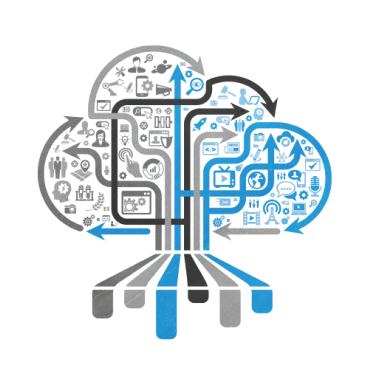Service
FEED aims to co-create sustainable solutions to any problems
We work as a team to generate, explore, build and validate ideas. we also contextualize innovations around the world to find the best fitting solutions to local problems.

Green Energy, Environment and Governance
Energy, especially renewable energy technology has a direct link to empower rural society and socio-economy through commercialization and modernization of the agriculture sector, decentralization of energy system development process, and generation of employment by introducing micro-enterprises at the local level could enhance rural economy. Thus FEED concludes energy is the prime mover of rural development leading to poverty alleviation and drudgery reduction of rural society. Further, FEED has also been advocating the significance of Green Energy in promoting the environment. The concept of green economy promotes the wellbeing of the functional ecosystem and economic growth under the good governance towards sustainable development. FEED envisages the quantification of the green economy through the three sustainability dimensions (economic, ecological, and social dimensions).
Planning and Insfrastructure Services
Infrastructure is crucial for development as it delivers the three pillars of the SDGs: economic, environmental and social sustainability. Be it the urban planning or preparing master plans; designing roads, buildings, developing transport systems or the power-generation facilities or the water and sanitation networks, it provides the services that enable society to function and economies to thrive. This puts infrastructure at the very heart of efforts to meet the Sustainable Development Goals (SDGs). Encompassing everything from health and education for all to access to energy, clean water and sanitation, most of the SDGs imply improvements in infrastructure. At FEED, we believe in innovation, Planning, designing and construction of infrastructure in a manner that allows maximum considerations to the natural environment, resource optimization and energy efficiency.


Disaster and Ecosystem
Ecosystems have been providing a number of services to support human well-being, however anthropogenic activities have affected biodiversity and ecosystem function. Further, the multitude of natural hazards and human induced disasters have aggravated the ecosystem and environmental settings. On this note, FEED has been prioritizing its activities through the number of Disaster Risk Reduction and Climate Change Adaptation activities in order to aim for sustainable development. The research and interventions carried out by FEED contributes to the increasing understanding of the linkages between ecosystems and humans. FEED believes in the scientific assessment of hazards (Eg: landslides, floods, earthquakes, etc) and its delineation to explore the potential interventions. While dealing with the intervention measures, alongside the structural measures, FEED also priotizes on the implementation of nature based solutions for the sustainable solutions. The solutions are devised on the foundations of technical analysis and multidisciplinary approaches.
Emerging Frontier Technologies
At FEED, we experiment the use of emerging frontier technologies to explore the window of opportunity in devising the solutions of the complex problems. The use of Drones can contribute in providing bird eye view to the complex problems through the generation of high resolution imageries, digital terrain models and surveillance. Further, the use of frontier technologies can contribute to the paradigm shift of the indicative approaches towards more precise and useful outputs. Further, the power of crowdsourcing, Low cost Innovations of Early Warning System are the major priority areas of FEED. For this, FEED is equipped with a team of innovators, designers, professionals, surveyors, and mappers to carry out the effective assignments of planning, designing, developing and implementing the solutions. The collected data is then processed and analyzed through the lens of multiple stakeholders to provide desired visualization. Further, FEED has also been advocating the importance of frontier technologies to cater the mission of sustainable development into a reality, improving people's lives, promoting prosperity and protecting the planet.


Policy and Institutional Development
FEED believes that the institutional development process begins with the analysis and diagnosis of the overall Institutional framework backed up by the design, implementation and regular monitoring and evaluation. The barriers such as Institutional and policy; Resource; Physical; Legal, Social and cultural are the barriers to sustainable development. At FEED, we aim to reduce and overcome such barriers through our continuous advocacy and adoption of the best practices. FEED has always advocated and prioritized its activities towards the integration of policies between levels of government (national, regional and local) ‐ vertical integration; between units, departments and ministries at different levels of government; horizontal integration – at the same level. Further, FEED has also been contributing to the development of frameworks, policy briefs, guidelines for the all round development.
Research, Training and Capacity Development
With a prime focus on science based decision making, FEED prioritizes Research and development as an important element. FEED has been advocating the significance of research in better planning and analysis and has been organizing a series of training sessions regarding the GIS Mapping, UAV Surveying, Google Earth Engine, crowdsourcing, geospatial data collection and analysis, and so on. Further, FEED has been providing tailored training packages in GIS Mapping, OpenStreetMap, Google Earth Engine, conducting susceptibility and hazard assessments, etc. to the students, researchers, government and non-government officials. FEED has been contributing in the capacity building of the early career researchers through the involvement in the form of Research Assistant, Interns and students during the implementation of the project. FEED believes that the participation of young practitioners together with the senior practitioners will contribute in the capacity building, skills and technology transfer. Further, FEED also believes in capacitating the human resources alongside the institute/organization inorder to contribute towards sustainability. While maintaining high standards of ethics, values, and professionalism, we design and co-create a rational solution to the research problem.

FEED FOR BETTER FUTURE
Request More Information
Forum for Energy and Environment Development (FEED) P. Ltd.
Jhamsikhel Marg, Lalitpur, Nepal
© 2023 Forum for Energy and Environment Development (FEED) P. Ltd.
